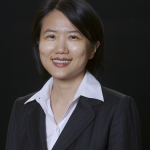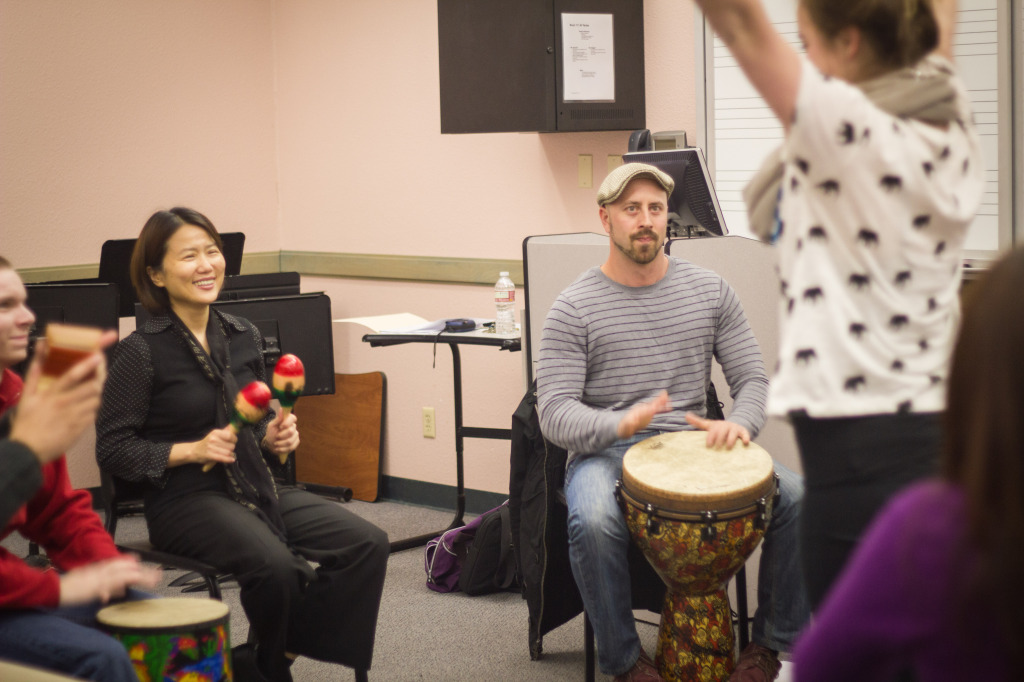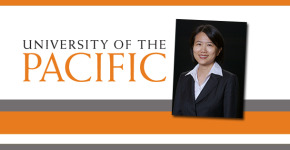
Advances in technology are allowing some people to hear and even create music for the first time.
Dr. Feilin Hsiao, assistant professor of music at The University of The Pacific, is working with Cochlear Implants to engage the hearing impaired musically.
Dr. Feilin Hsiao directs University of the Pacific’s Music Therapy Program, established 75 years ago as one of the first such programs in the United States. Dr. Hsiao holds a Ph.D. in music education with an emphasis in music therapy from the University of Iowa, an M.A. in music therapy from New York University, and a B.A. in piano performance from the Chinese Cultural University in Taipei, Taiwan. She is a board-certified music therapist with extensive clinical and supervisory experience in special education, early intervention, youth homes, burn rehabilitation, geriatrics, and geriatric psychiatry. She also holds teacher credentials in both music education and special education.
Dr. Hsiao is active in the national and international research community. Her research interests include best practices in music therapy education and supervision, as well as perceptual testing and aural rehabilitation of individuals with hearing impairments. Her work has published in the Journal of Music Therapy, Update: Application of Research in Music Education and Cochlear Implants International.

She has lectured at National Taipei University of Education, Taipei Municipal University of Education, and Shih Chien University, and has served as a research assistant for the Music Perception Team of the Iowa Cochlear Implant Research Center at the University of Iowa Hospital and Clinics. She is a past president of the Music Therapy Association of Taiwan and a recipient of the T. Anne Cleary International Dissertation Research Fellowship. Dr. Hsiao teaches both undergraduate and graduate courses in music therapy at University of the Pacific’s Conservatory of Music.
♬ Cochlear Implants and Music ♬
![]()
Cochlear implants are designed for people with severe and profound deafness who receive little benefit from hearing aids. Today more than 200,000 people around the world use these devices to hear speech and environmental sounds. For children in particular, cochlear implants also help in language development and speech production.
My colleagues and I are increasingly hopeful that the benefits of these devices will expand even more – so that recipients can enjoy and make music.
Cochlear implants do not replicate musical sound as we hear it through a normal ear.
The implants bypass the outer and middle ear to send electrical signals to the auditory nerve. However, they only transmit parts of sound that are considered important for understanding speech.
Existing research has found that cochlear implant recipients usually can perceive rhythmic patterns better than melodies. And percussive instruments — including the piano – often sound better than string and brass instruments.
![]()
![]()
Research has also shown that a focused training program can enhance pitch accuracy.
Through a pilot study, I have found that people with cochlear implants can be taught to sing on-pitch.
Innate brain plasticity allows them to learn and associate notes of the scale with hand signals. This novel experience may even rewire their neural circuits so that they can better interpret melodies.
These findings are important for music therapists who work with cochlear implant recipients, as well as for the engineers who are working to design more sophisticated devices. The knowledge is also inspiring for parents, teachers and, most of all, for the many thousands of cochlear implant users around the world who might be able to enjoy music for the first time.

Comments
One response to “Feilin Hsiao, The University of Pacific – Cochlear Implants and Music”
shes cute